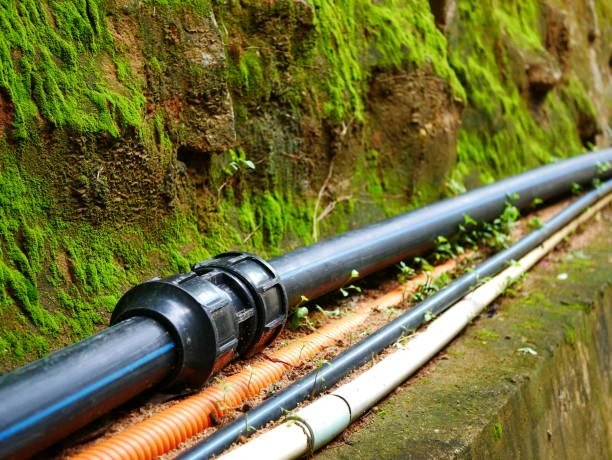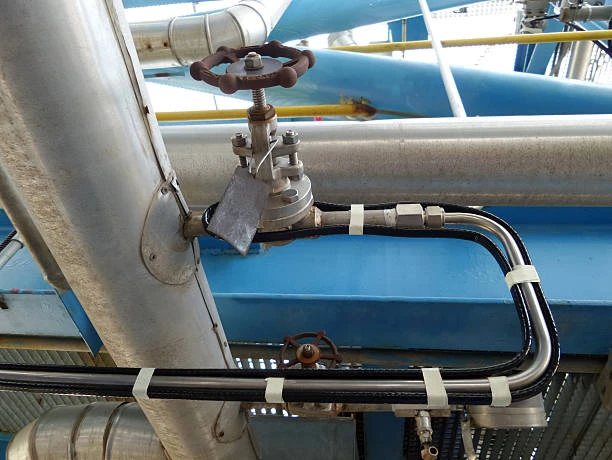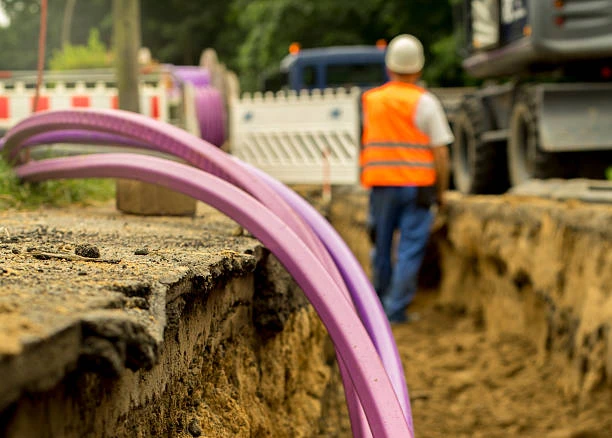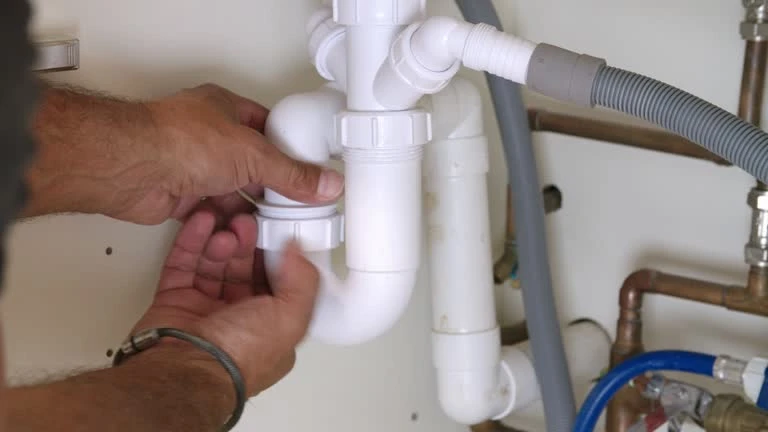1.Introduction
High Density Polyethylene (HDPE) pipes are one of the most reliable piping solutions in today’s infrastructure and industrial sectors. Known for their durability, flexibility, and resistance to chemicals and corrosion, HDPE pipes are widely used in water supply, gas distribution, sewage systems, and agricultural irrigation. This article provides a comprehensive overview of HDPE pipes, including their key characteristics, practical applications, installation tips, and comparisons with other common pipe types.
2. FAQ – Frequently Asked Questions
1. What is a High Density Polyethylene (HDPE) pipe?
HDPE pipe is a flexible, thermoplastic pipe made from petroleum-based polyethylene. It is commonly used to transport water, gas, and chemicals.
2. Why are Polyethylene Pipe so popular in infrastructure projects?
Because they are strong, lightweight, corrosion-resistant, and easy to install, making them cost-effective over time.
3. Can HDPE pipes be used for drinking water?
Yes, HDPE pipes are safe for potable water and are commonly used in municipal and residential water systems.
4. How long do HDPE pipes typically last?
They can last 50 to 100 years, depending on installation conditions and usage.
5. Are HDPE pipes environmentally friendly?
Yes, HDPE pipes are recyclable and often require less energy to produce and install compared to traditional metal or concrete pipes.
3. Definition and Characteristics
High Density Polyethylene pipe is made from thermoplastic resin with high molecular weight, offering impressive strength and performance. These pipes are typically black or black with colored stripes indicating their use (e.g., blue for water, yellow for gas).
Key Features:
Flexibility: Allows for easy bending around obstacles, reducing the need for fittings.
Chemical Resistance: Suitable for transporting aggressive substances.
Corrosion-Free: Unlike metal pipes, HDPE does not rust or corrode.
Smooth Inner Surface: Reduces pressure loss and increases flow efficiency.
Durability: Withstands ground movements, temperature changes, and high pressure.
Leak-Free Joints: Heat fusion welding creates strong, continuous pipe systems.
4. Common Applications and Industries
Polyethylene Pipe serve a variety of industries due to their strength and versatility.
a. Water Supply Systems
Ideal for municipal, residential, and rural water networks due to their clean, non-toxic properties and long lifespan.
b. Gas Distribution
HDPE’s high strength and secure fusion joints make it a safe choice for transporting natural gas and LPG.
c. Sewage and Wastewater
Its resistance to biological growth and chemicals makes it perfect for sewer and stormwater systems.
d. Agriculture and Irrigation
Used in drip and sprinkler irrigation systems. The flexibility and UV-resistance help in both underground and surface layouts.
e. Industrial and Chemical Transfer
Handles harsh industrial chemicals and compressed air without degradation.
f. Cable Protection
HDPE conduit protects electrical and telecom cables from moisture and mechanical damage.
5. Buying Guide: How to Choose the Right Polyethylene Pipe
When selecting HDPE pipes for a project, consider the following aspects:
Application: Determine whether the pipe will carry water, gas, sewage, or chemicals.
Pipe Diameter and Wall Thickness: Choose based on flow rate and pressure requirements.
Color Markings: Help identify the use—blue (water), yellow (gas), orange (electric cable).
Raw Material Quality: PE100 pipes offer higher pressure tolerance than PE80.
Fitting Compatibility: Ensure compatibility with fusion or mechanical fittings.
Certification & Testing: Choose products that pass pressure and durability testing, even if no international standard is specified.
6. Installation Tips and Considerations
Correct installation ensures optimal performance and longevity of HDPE pipes:
Transport and Handling: Use proper lifting techniques and avoid dragging the pipe.
Trenching: Prepare a smooth trench bed free of sharp stones or debris.
Bending: Respect the minimum bend radius to avoid pipe deformation.
Joining Method: Use butt fusion or electrofusion for strong, leak-proof joints.
Backfilling: Use fine material and compact gently to avoid damaging the pipe.
Testing: Always conduct hydrostatic pressure tests after installation.
7. Comparison: HDPE vs Other Pipe Materials
Here’s how HDPE pipes compare with other common pipe types:
| Feature | HDPE Pipe | PVC Pipe | Steel Pipe |
|---|---|---|---|
| Corrosion Resistance | Excellent | Good | Poor |
| Flexibility | High | Low | Very Low |
| Weight | Light | Light | Heavy |
| Joint System | Fusion Weld | Solvent Glue | Welded/Threaded |
| Lifespan | 50–100 years | 30–50 years | 20–40 years |
| Pressure Capacity | High (with PE100) | Moderate | High |
| Installation Speed | Fast | Moderate | Slow |
| Maintenance Cost | Low | Moderate | High |
8. Conclusion
HDPE pipes offer a powerful combination of strength, flexibility, and durability, making them ideal for modern infrastructure. Whether you are planning a water supply network, an irrigation system, or an underground utility line, HDPE pipes provide long-term value and reliability. Their resistance to corrosion, smooth internal surface, and easy installation make them a top choice for engineers, contractors, and utility managers worldwide.
If you’re considering piping options for your next project, HDPE is a solution that delivers efficiency, safety, and peace of mind for decades.
IFAN international standard
HDPE pipes are manufactured in accordance with multiple international standards to ensure quality, durability, and application safety. In the U.S., ASTM D3035 and ASTM D3350 define the dimensional and material requirements for HDPE pressure pipes. ISO 4427 and EN 12201 are widely accepted global and European standards for HDPE pipes in water and wastewater systems. DIN 8074/8075 specify German technical norms, while GB/T 13663 is the standard in China. AS/NZS 4130 applies in Australia and New Zealand, and JIS K6760 covers Japanese quality criteria. BS 6572 outlines standards for HDPE pipes in the UK, and CSA B137.1 regulates their use in Canada. These standards ensure that HDPE piping systems meet essential criteria for pressure resistance, chemical stability, and long-term performance in infrastructure and industrial applications.
Connect
IFAN is a reputable Chinese manufacturer with 30 years of expertise in plastic pipes, fittings, and valves. We specialize in copper fittings, brass valves, and plastic piping solutions that meet a wide range of plumbing needs.
If you want to learn more about our cost-effective valve products and comprehensive piping systems, please contact us. Our professional team will reply within 24 hours to assist with your requirements.
Contact Information:
- For more information,pls visit our webside https://waterpipefitting.com/
Pls Mailto: [email protected]
Whatsapp: +86 15088288323
Feel free to reach out anytime for questions about our products or technical advice.














Recent Comments